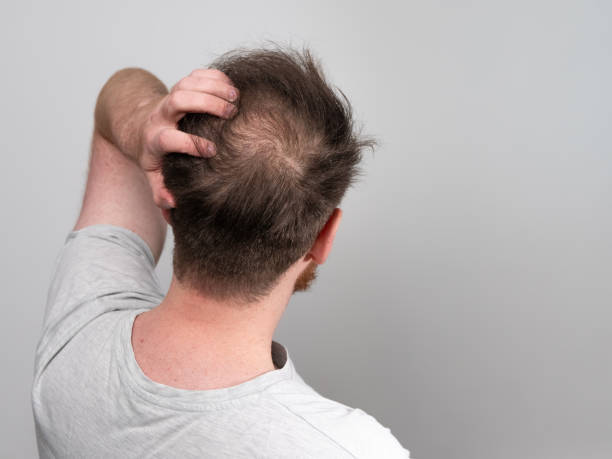
Testosterone Replacement Therapy (TRT) has become an increasingly popular treatment for men experiencing symptoms of low testosterone, such as fatigue, muscle loss, weight gain, and low libido. While TRT offers many benefits, one common concern among men considering the therapy is hair loss.
At Tulsi Wellness Club, we understand the importance of maintaining both hormonal balance and aesthetic confidence. So, does TRT actually cause hair loss? Let’s break down the science behind testosterone, DHT, and male pattern baldness.
How Does TRT Affect Hair Loss?
Hair loss, specifically male pattern baldness (androgenetic alopecia), is largely influenced by genetics and the hormone dihydrotestosterone (DHT)—a byproduct of testosterone.
Testosterone and DHT: The Connection
Testosterone converts into DHT through an enzyme called 5-alpha reductase.
DHT binds to hair follicle receptors, causing them to shrink over time.
Genetics play a major role—if you have a family history of baldness, you’re more likely to experience hair thinning, regardless of TRT.
Since TRT increases testosterone levels, some of it may be converted into DHT, potentially accelerating hair loss in men who are already genetically predisposed. However, TRT itself does not directly cause hair loss—it only amplifies an existing genetic tendency.
Who Is at Risk of Hair Loss on TRT?
Men With a Genetic Predisposition – If male pattern baldness runs in your family, TRT may speed up the process.
Men With High DHT Sensitivity – Some men have more sensitive hair follicles that react strongly to even normal DHT levels.
Men Who Start TRT at a Younger Age – Younger men with mild hair thinning may notice faster progression once their testosterone levels increase.
Men Without a Genetic History of Hair Loss – If you have full hair and no family history of baldness, TRT is unlikely to cause hair loss.
How to Prevent Hair Loss on TRT
If you’re concerned about hair loss while on TRT, there are several strategies to protect your hair:
DHT-Blocking Medications
Finasteride (Propecia) – This blocks the 5-alpha reductase enzyme, reducing DHT levels by 60-70%.
Dutasteride (Avodart) – A stronger DHT blocker that inhibits both Type 1 and Type 2 5-alpha reductase enzymes.
Potential Side Effects: Some men experience low libido or erectile dysfunction with DHT blockers.
Topical Hair Treatments
Minoxidil (Rogaine) – A topical solution that increases blood flow to hair follicles, promoting growth.
PRP (Platelet-Rich Plasma) Therapy – Uses your own platelets to rejuvenate hair follicles.
Red Light Therapy (LLLT) – Can help stimulate hair regrowth by improving circulation to the scalp.
Adjusting Your TRT Protocol
Some men lower their TRT dose to reduce excess DHT conversion.
Using DHT-Blocking Shampoos – Ingredients like ketoconazole can help reduce scalp DHT levels.
Final Verdict: Does TRT Cause Hair Loss?
No, TRT itself does not cause hair loss. However, it can accelerate hair thinning in men who are genetically predisposed to male pattern baldness due to increased DHT levels.
If you’re worried about hair loss on TRT, there are many proven solutions to help slow or even prevent it. At Tulsi Wellness Club, we take a personalized approach to TRT, ensuring optimal hormone balance while addressing concerns like hair health.
Want to start TRT without compromising your hair? Contact us today for a consultation!
Dr. Devin Stone
Contact Me


